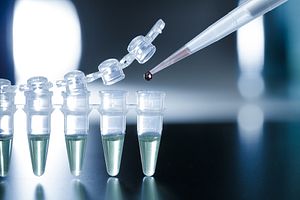A young Japanese researcher who, until recently, was considered a rising star in the country’s scientific community has been found guilty of two cases of misconduct after failed peer reviews and an investigation into her work.
Haruko Obokata, 30, was the lead author of two breakthrough papers on stem cell growth. Her latest, on stimulus triggered activation of pluripotency (STAP) cells, was published in the journal Nature in January. Obokata and her team claimed to have produced pluripotent stem cells by immersing mouse blood cells in an acid solution.
“Making pluripotent cells by reprogramming ordinary cells avoids the need to harvest them from embryos, their natural habitat, which is an ethically delicate matter,” wrote The Economist.
A committee set up by the government-sponsored RIKEN Center for Developmental Biology in Kobe, Obokata’s employer and one of Japan’s most respected scientific institutes, found her guilty of “deliberate falsification.” The panel concluded that some images used in Obokata’s paper “closely resembled” previous images found in her doctoral thesis at Waseda University.
The official report added that Obokata’s “actions and sloppy data management lead us to the conclusion that she sorely lacks, not only a sense of research ethics, but also integrity and humility as a scientific researcher.”
After its publication earlier this year, stem cell researchers across the globe attempted – and failed – to replicate Obokata’s revolutionary technique. The Knoepfler Lab at the UC Davis School of Medicine in California was one of the first to poke holes in the method – citing nine failures. The lab’s blog called RIKEN’s scathing report an “acid bath of criticism” for Obokata.
Earlier this month, Chinese University of Hong Kong researcher Kenneth Ka Ho Lee also failed to replicate Obokata’s results. His three unsuccessful attempts were live-blogged on the science-focused social network ResearchGate.
Obokata expressed dismay at RIKEN’s findings. She has refused to retract her initial research and has stated her intent to appeal the decision.
“I was outraged and shocked by the committee’s report,” she said through a lawyer. “I absolutely cannot accept the conclusion that research was fabricated and doctored.”
RIKEN president Ryoji Noyori, a Nobel Prize-winning chemist, was unmoved by Obokata’s claims of innocence. He called out senior members of Obokata’s team in a statement to the press:
“Unfortunately, within the collaboration between researchers in the current case, research misconduct occurred due to a young researcher’s lack of experience and awareness of the importance of research ethics, the lack of leadership among researchers in a position to help her, and a lack of mutual verification among the groups.”

































